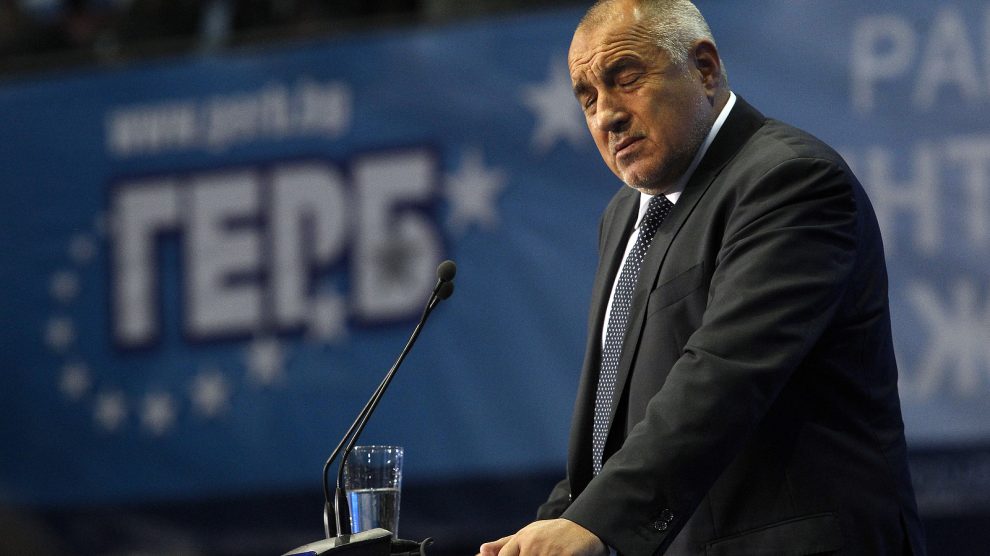With none of Bulgaria’s three largest parties able to form a working coalition in a highly-fragmented parliament, a new election looks unavoidable.
Bulgaria will hold a snap election after the Socialist party announced at the weekend that it would be unable to form a government.
Both the GERB party of outgoing Prime Minister Boyko Borissov (pictured above) and a new, anti-establishment party, known as There Is Such a People, have also failed to find willing coalition partners since an inconclusive general election on April 4 returned a highly-fragmented parliament.
Bulgaria’s president, Rumen Radev, now faces having to dissolve parliament, appoint an interim administration and call snap polls within two months – most likely on July 11.
- Bulgaria’s PM faces struggle to stay in office despite election win
- CEE on the Gallagher Index: Which country has the region’s most proportional parliament?
- Why Bulgarians in the UK will find it difficult to vote in their home country’s election
Mr Borissov’s GERB won the April election with 25.8 per cent of the vote – well down on the more than 33 per cent it received four years ago – followed by There Is Such a People on 17.4 per cent. The Socialists came in third with 14.8 per cent, losing half of their parliamentary seats.
None of the three parties have anywhere near enough seats to form a government on their own, and all three have ruled out working with each other.
Two other new, anti-establishment parliamentary parties, Democratic Bulgaria and Stand Up! Mafia Out!, which took 11 per cent and 5.1 per cent of the vote respectively, have also ruled out working with GERB and the Socialists.
‘Even a temporary government is impossible’
“The three new parties in the parliament have shown political immaturity,” said Socialist leader Kornelia Ninova after declaring that her party would be unable to form a government. “They could not overcome their egos. Given the situation, a government led by us, even a temporary one, is impossible.”
There Is Such a People’s leader Slavi Trifonov, a musician and TV star, in turn laid the blame squarely at the door of GERB and the Socialists.
“The support offered to us comes from political factions which are harmful, greedy and proven to be compromised. What they offer is not support, but dependence,” he said.
Shortly after the April vote, Mr Borissov called on party leaders to consider a technocrat government that would focus on bringing in cash from the European Union.
“I offer you peace. I offer you the chance to put forward experts, to take responsibility,” he said at the time. “This is my proposal for all, enjoy the results for two, three days and then consider – what is stable and what is not.”
But this idea now appears to be a non-starter given the mistrust between GERB, the Socialists, and the new, anti-establishment parties.
All three anti-establishment parties campaigned on anti-corruption platforms.
Bulgaria’s score of 44 (out of 100) on Transparency International’s most recent Corruption Perceptions Index placed it 69th out of 180 countries surveyed, and was the worst result of any European Union member.
Unlike many news and information platforms, Emerging Europe is free to read, and always will be. There is no paywall here. We are independent, not affiliated with nor representing any political party or business organisation. We want the very best for emerging Europe, nothing more, nothing less. Your support will help us continue to spread the word about this amazing region.
You can contribute here. Thank you.








[…] another parliamentary election on July 11 after the country’s three largest political parties failed to form a coalition government. Last month’s vote resulted in a political deadlock and fragmented parliament. President […]
[…] After three failed attempts to form a government, Bulgaria looks set for a new election […]